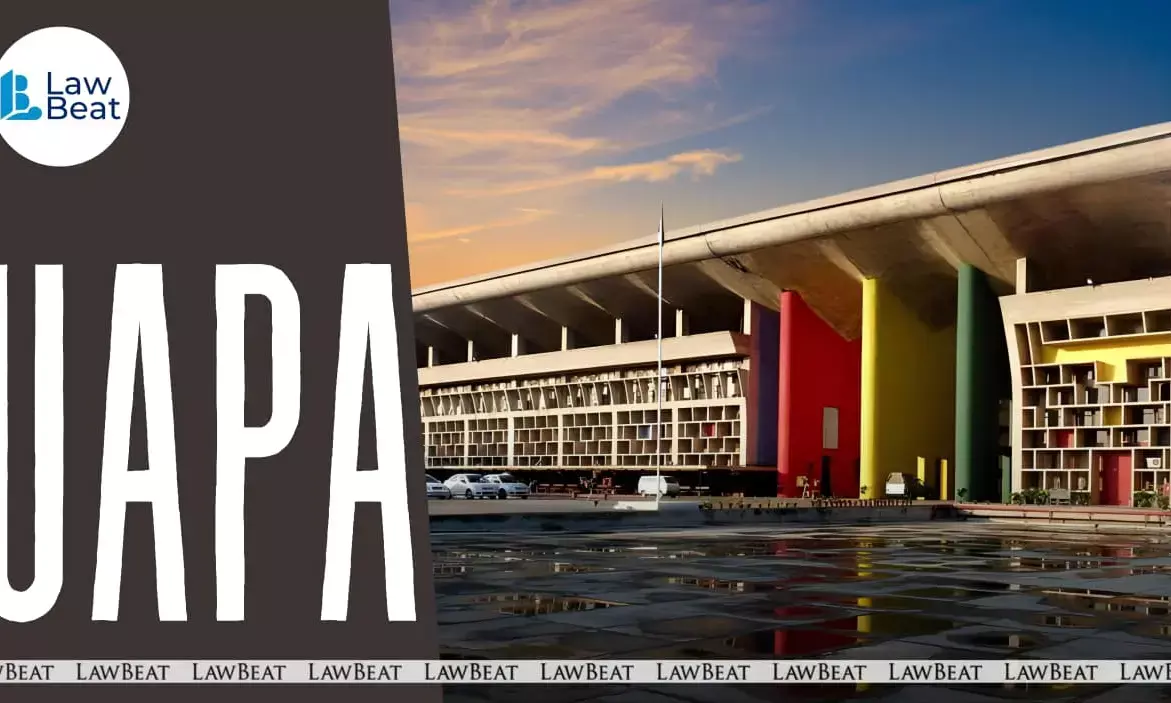Punjab & Haryana HC Orders Bail in UAPA Case After 34 Months of Custody

Punjab and Haryana High Court grants bail after nearly three years of long incarceration under UAPA charges, citing lack of evidence and trial delay
The Punjab and Haryana High Court has set aside the order denying bail and directed the release of one Pritpal Singh Batra @ Giffy Batra, holding that he was entitled to regular bail despite being booked under provisions of the Unlawful Activities (Prevention) Act (UAPA), after noting nearly three years of incarceration without the framing of charges and the absence of material establishing any link to terrorist activity.
The bench of Justice Deepak Sibal and Justice Lapita Banerji noted that Batra was not named in the FIR and that the prosecution’s case rested almost entirely on disclosure statements made by co-accused while in police custody. Court recorded that even Batra’s own alleged disclosure that he retrieved hidden weapons from Pathankot on the instructions of two jailed “terrorists” was unsupported by basic evidentiary material.
The FIR had initially been lodged in June 2022 on secret information that three proclaimed offenders were moving around with illegal weapons in Patiala. Weapons were recovered from two of them and subsequent arrests led police to Kamaldeep Singh, from whom a .32 bore revolver was seized. His interrogation prompted the naming of Batra, whom he claimed had given him the weapon months earlier and had accompanied him to Pathankot to dig out hidden pistols. Batra was arrested after recoveries were allegedly made from his residence.
But the High Court found that the prosecution had failed to substantiate the most crucial parts of its UAPA allegations. There was no evidence that Batra and the two alleged terrorists, namely Gurdev Singh and Bhavdeep Singh, were lodged in the same jail at the same time. There were no call records showing any WhatsApp communication. The State had not demonstrated that either man had been declared a terrorist by the Union or the State. No connection had been drawn between the recovered weapons and any planned or executed terrorist act.
Court noted that almost every co-accused in the case, including those named in the FIR and those allegedly involved in supplying weapons, had already been granted bail by the trial court or a coordinate bench. Investigation was complete and charges had not been framed solely because the State had not granted sanction under Section 45 UAPA, resulting in prolonged incarceration.
Referring to a series of Supreme Court judgments, including Union of India v. K.A. Najeeb, (2021), Vernon v. The State of Maharashtra and another, (2023), Shoma Kanti Sen v. State of Maharashtra and another, (2024), and Jalaluddin Khan v. Union of India (2024), the bench reiterated that long custody and indefinite delay in trial engage Article 21 and allow constitutional courts to grant bail even in stringent statutory regimes. The High Court observed that there were no reasonable grounds to believe the accusations under UAPA were prima facie true, a mandatory requirement for refusing bail under Section 43-D(5).
Court particularly relied on Jalaluddin Khan, where the Supreme Court held that courts must examine material objectively and cannot deny bail solely because allegations appear serious. The High Court also took note of the apex court’s observations on prison overcrowding, the dangers of “prisonisation,” and the irreversible consequences of long pre-trial detention on undertrials later acquitted.
Allowing the appeal, the bench granted regular bail subject to stringent conditions. Batra must furnish a Rs. 10 lakh bond with two sureties, deposit his passport, appear before the trial court on every date unless exempted, and mark weekly attendance before the station house officer of his area until the conclusion of trial. He must not threaten witnesses, engage in any criminal activity, or create third-party interests in any immovable property. The trial court may impose additional conditions at the time of release.
Court concluded by permitting the prosecution to seek cancellation of bail if any condition is breached and clarified that its observations are limited to the adjudication of bail.
Case Title: Pritpal Singh Batra @ Giffy Batra vs. State of Punjab
Order Date: November 17, 2025
Bench: Justice Deepak Sibal and Justice Lapita Banerji
